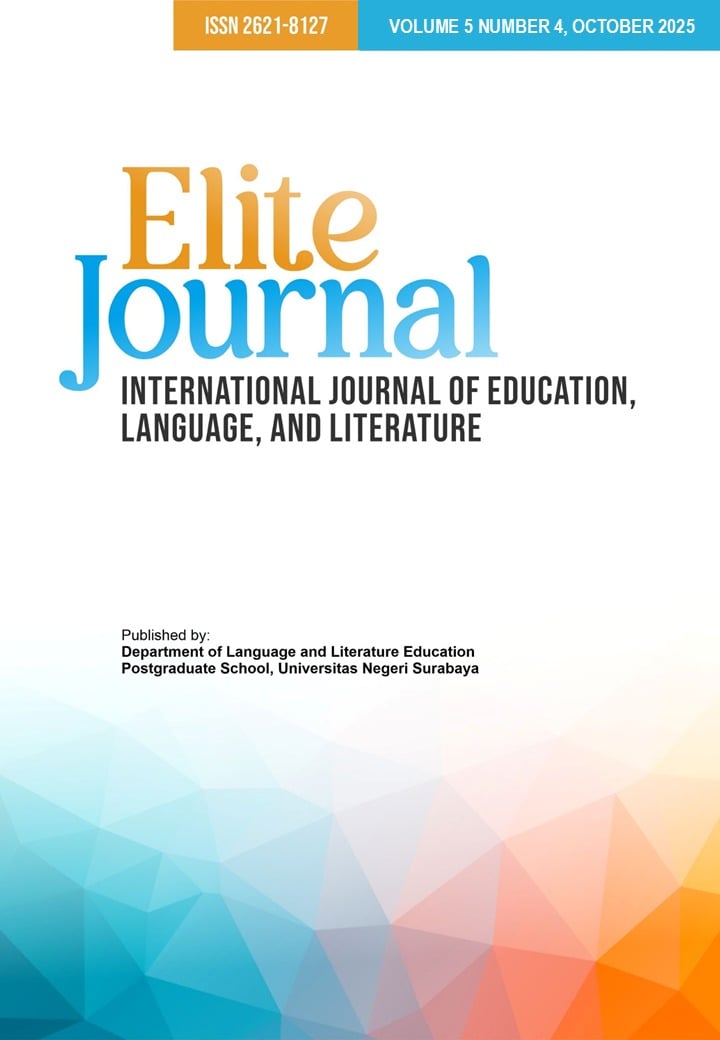A JOURNEY TO INDIVIDUATION: JUNGIAN ARCHETYPES AS EXPERIENCED BY JIN KAZAMA IN TEKKEN 8
DOI:
https://doi.org/10.26740/elitejournal.v5n4.p88-96Keywords:
Analytical Psychology, Inner Journey, Narrative Symbolism, Personality Integration, Self-TransormationAbstract
This study explores the character development of Jin Kazama in Tekken 8 as a narrative representation of Carl Gustav Jung’s theory of individuation. Utilizing a qualitative textual analysis, the research examines key narrative moments, character interactions, and symbolic visual design from the game’s story mode. The analysis focuses on Jungian archetypes—such as the Shadow, the Anima, the Wise Old Man, and the Self—to trace Jin’s psychological transformation. The findings reveal that Jin’s internal conflict with the Devil Gene symbolizes his confrontation with the Shadow, while his emotional encounter with his mother, Jun Kazama, reflects the integration of the Anima. Guidance from the character Leroy Smith further illustrates the influence of the Wise Old Man archetype, culminating in Jin’s integration of the Self, represented visually by his dual wings. Through this lens, Tekken 8 becomes a rich modern allegory of self-discovery and psychological wholeness, demonstrating how video games can portray complex theoretical concepts in an accessible and emotionally engaging form.
References
Academy of Ideas. (2016). Introduction to Carl Jung – The Psyche, Archetypes and the Collective Unconscious.
Jung, C. (1969). Collected Works of C.G. Jung, Volume 8: Structure & Dynamics of the Psyche. New Jersey: Princeton University Press.
Jung, C. G. (1959). Aion: Researches into the Phenomenology of the Self. In H. Read, M. Fordham, & G. Adler (Eds.), The Collected Works of C. G. Jung (Vol. 9, Part 2). Princeton University Press.
Jung, C. G. (1970). The Structure and Dynamics of the Psyche. In H. Read, M. Fordham, & G. Adler (Eds.), The Collected Works of C. G. Jung (Vol. 8). Princeton University Press.
Psychologist World. (n.d.). Carl Jung: Archetypes and Analytical Psychology. Retrieved from Psychologist World
Whitmont, E. (1969). The Symbolic Quest: Basic Concepts of Analytical Psychology. G. P. Putnam's Sons for the C.G. Jung Foundation for Analytical Psychology.
Zuhro, H. F. (2020). New York, Published by Putnam for the C.G. Jung Foundation for Analytical Psychology. New York, Published by Putnam for the C.G. Jung Foundation for Analytical Psychology.
Downloads
Published
How to Cite
Issue
Section
License
Copyright (c) 2025 Noor Rizky Rahmansyah

This work is licensed under a Creative Commons Attribution 4.0 International License.
 Abstract views: 117
,
Abstract views: 117
, PDF Downloads: 155
PDF Downloads: 155





